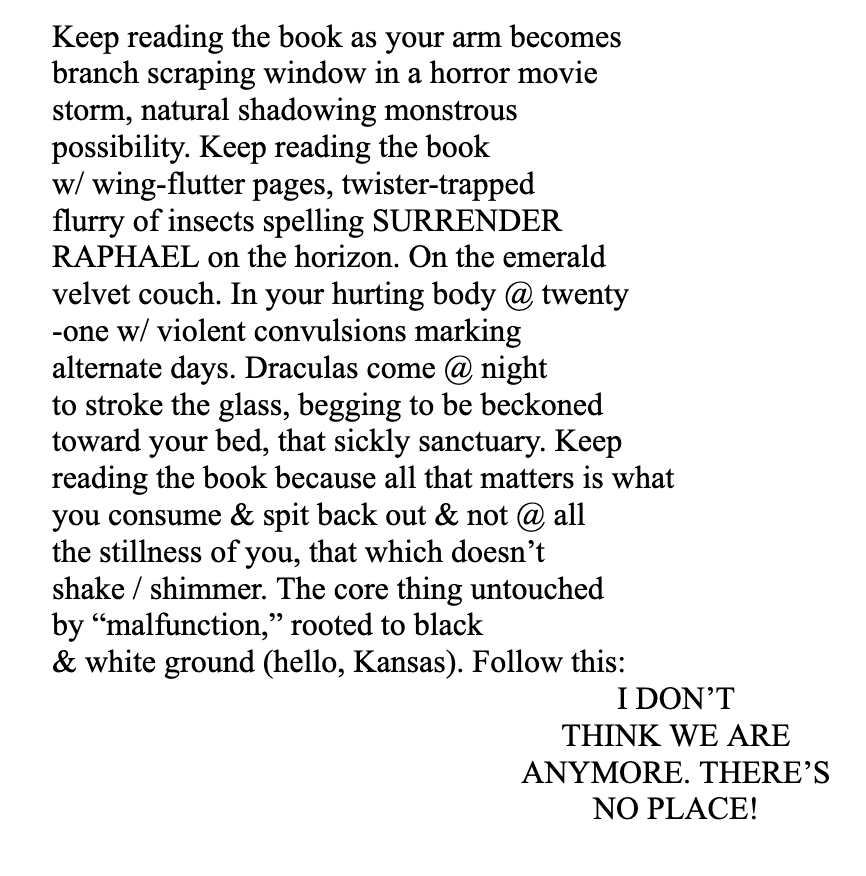By Addison Zeller
This is your new brother, said Mom.
We adopted him.
He needs help, we can help him.
So here he is: Brandon.
I looked up at fucking Brandon.
He was an old kid, probably thirty: I was nine.
Brandon will sleep on your floor till Thursday, when his bed gets here.
There were deep circles under Brandon’s eyes.
Do I have to share my room with Brandon? I asked at bedtime.
Brandon was in the bathroom, brushing his teeth and shaving, I believe, his pubes.
He’s your brother, said Mom.
Brandon got up to pee six or seven times that night.
He’d come back and wiggle into his sleeping bag and pop open the beer he brought with him.
The very next day was Brandon’s birthday.
Mom was crying.
Mom, what is it?
Oh, it’s just—you know—been a hard two years.
And while you and Brandon have brought me joy, it’s sobering to look at a kid of yours and realize he’s hitting thirty-one.
Eventually you’ll have kids of your own.
Then you’ll know.
She went downstairs to bake the cake.
A peach-colored cake, orange-flavored.
Brandon spent the morning enrolling at school.
The enrollment process was counterintuitive.
The directions on the website confused him.
He said bad words the entire time.
Brandon, said Mom.
Sorry, Mom, said Brandon.
Remember you aren’t my only child.
Mom nodded at the kitchen table, where I was cutting my Eggo so each square was intact.
I know, Mom, jeez, said Brandon.
What IS the matter? asked Mom.
Nothing.
C’mon, partner, tell me.
Well, said Brandon, the bedroom situation.
Just cause he’s youngest it’s like he gets everything.
You’ll always be my oldest, Mom said, which means you have responsibilities to your younger brother.
You have to concede—know that word?—you gotta understand your brother needs more attention, being younger.
Which doesn’t make anyone my favorite or least favorite, but it does mean I trust you to make more sacrifices and be more mature, even if it feels unfair.
Your little brother is learning stuff you already internalized.
He has a lot more growing to do.
You’re a young man now.
I don’t know why I was angry, but by then I was angry.
I barely sang for Brandon when the cake was lit.
I ate a piece but not for his sake.
When we went to bed I didn’t say goodnight to him.
I didn’t even look up when he went out real late to talk to a guy in our driveway.
He came in smelling like a skunk and all I said was, There’s a skunk outside, Brandon.
It sucked even more at school.
I’d struggle with everything and look over and he’d be done.
The hardest problem for me didn’t seem like a problem for him.
A breeze maybe, not a problem.
He answered the teacher’s questions almost always.
The teacher smoked with him at recess.
The whole class was about him and what a genius he was.
He went drinking with the janitor after school.
He’d come back for bedtime dead drunk and hollow-eyed.
He’d smoke in the doorway and chuckle meaninglessly.
He’d be incapable of taking his boots off without tripping.
He’d crash onto his new bed and hum to himself and scream bad words.
Sometimes he’d look at me and call me a little shit-custard.
I don’t know what that means now and I didn’t then and I’m older now than he was.
He turned, like all teenagers, into a real bastard at forty.
A real lazy bastard with bad health issues.
Now I have to work hard to support them both.
I have to drive Mom to the grocery store and Brandon to the proctologist.
There are bumps up and down the road and he goes Ah ah ah oh god oh god.
There are bumps up and down something else, if you follow.
Things didn’t work out for us, that’s the problem.
Addison Zeller’s fiction appears or is forthcoming in 3:AM, Ligeia, trampset, Epiphany, ergot., Hex, Sleepingfish, minor literature[s], and elsewhere. He lives in Wooster, Ohio.

